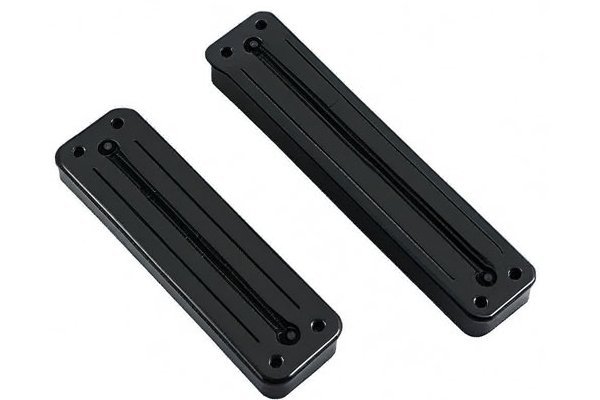Did you know that the global CNC machining market was valued at approximately $63 billion in 2020 and is expected to grow at a CAGR of about 5% by 2028? This rapid rise is indicative of an industry at the forefront of manufacturing innovation. As businesses demand more customized solutions delivered in shorter timeframes, it raises an important question: Can CNC custom processing plants adapt to meet the challenge of large-scale production efficiently?
In this comprehensive blog, we will delve into the capabilities of CNC custom processing plants regarding large-scale production, exploring the technological advancements, best practices, and strategies that facilitate rapid and efficient manufacturing processes. We will discuss everything from operational workflows to quality assurance, emphasizing how businesses can address contemporary challenges while maximizing productivity.
Understanding CNC Machining
What is CNC Machining?
CNC (Computer Numerical Control) machining is a manufacturing process that utilizes computerized controls to operate machines and tools. It involves creating parts and components by precisely removing material from a workpiece. This highly automated method allows for intricate designs, repeatability, and efficiency, making it a go-to solution for industries ranging from aerospace to automotive and beyond.
The Need for Large-Scale Production
As industries evolve, demand for customized products continues to grow. Companies require shorter lead times without compromising quality. Thus, CNC custom processing plants are increasingly tasked with scaling their operations to accommodate larger production volumes. So, how can these plants meet such rigorous demands?
The Challenges of Large-Scale Production
When transitioning from small-batch to large-scale production, timelines compress, necessitating rapid turnaround times. Efficiency becomes paramount; delays can translate into lost revenue and dissatisfied customers.
In large-scale production, maintaining consistency and quality is crucial. Even slight variations in the production process can lead to defective products, which pose significant risks in regulated industries, such as aerospace or healthcare.
Utilizing resources optimally is a common challenge. From labor to raw materials, proper management strategies are necessary to prevent resource wastage and ensure production flows smoothly.
Machinery limits can hinder production. Companies must assess whether their existing equipment can scale to meet increased demands or if investing in upgraded technology is necessary.
While CNC technology is highly automated, a skilled workforce is critical to operate, troubleshoot, and maintain the machinery. A shortage of skilled workers can impede large-scale production efforts.
Solutions for Efficient Large-Scale CNC Machining
High-Speed Machining
High-speed CNC machines are designed to operate at fast feed rates, minimizing production times. These machines allow for very fine tolerances, making them ideal for producing complex components in one continuous operation.
Multi-Function Machinery
Incorporating multi-function CNC machines can drastically reduce set-up times and the need for multiple machines in the production line. A machine that combines milling, turning, and drilling can optimize workflows and enhance production efficiency.
Lean manufacturing focuses on minimizing waste while maximizing productivity. By streamlining operations, CNC plants can efficiently manage large-scale production. Key practices include:
Integrating software solutions for managing operations can streamline CNC processes:

As technology evolves, ongoing training for employees is essential. Implementing regular training programs focused on CNC operation, troubleshooting, and process improvement ensures a skilled workforce capable of addressing production challenges.
Incorporating quality assurance measures throughout the production process is critical. Techniques include:
Efficient resource management strategies ensure that materials and labor are utilized effectively:
Case Studies in Large-Scale Production
Case Study 1: Aerospace Industry
A leading aerospace manufacturer faced challenges in transitioning from prototype to large-scale production. By investing in advanced CNC technology and implementing lean manufacturing principles, they achieved a 30% reduction in production time while maintaining high-quality standards critical for regulatory compliance.
Case Study 2: Automotive Sector
An automotive supplier improved production efficiency by incorporating multi-function CNC machines and real-time monitoring tools. This transition not only doubled their production capacity but also reduced setup times, significantly increasing overall output.
Future Trends in CNC Machining for Large-Scale Production
As the CNC machining landscape continues to evolve, several trends are shaping the future of large-scale production:
The integration of robotics in CNC machining is transforming production capabilities. Automated loading/unloading systems and robotic arms can streamline operations, allowing plants to further scale their production without substantially increasing labor costs.
The convergence of additive manufacturing (3D printing) and traditional CNC machining presents exciting opportunities. Hybrid manufacturing solutions enable rapid prototyping and complex part production with reduced material waste.
The future of CNC machining is leaning towards AI-driven solutions. Predictive analytics can optimize maintenance schedules, forecast supply needs, and refine production processes based on real-time data.
The ability of CNC custom processing plants to handle large-scale production relies on a strategic blend of technology, methodologies, and workforce development. By investing in advanced machinery, implementing lean practices, and embracing automation and data analytics, businesses can thrive in an increasingly competitive landscape.
Ultimately, adaptive strategies and a commitment to continuous improvement will ensure that CNC machining remains a cornerstone of modern manufacturing. As we have explored in this blog, addressing the challenges of large-scale production is not merely a short-term goal; it is a vital strategy for sustaining growth and customer satisfaction in the long run.
Remember, the world of CNC machining is evolving rapidly. Staying informed and adopting these practices can better position your organization for success in an industry that is always striving for efficiency and innovation. Engage with these methodologies today and set your business up for a prosperous tomorrow.






